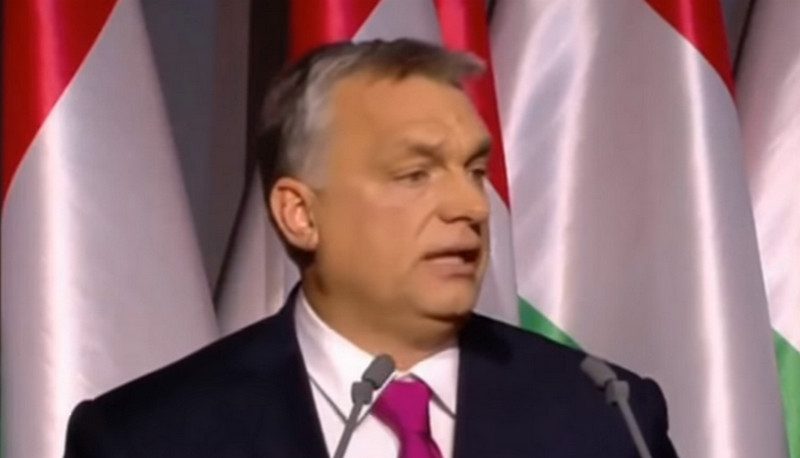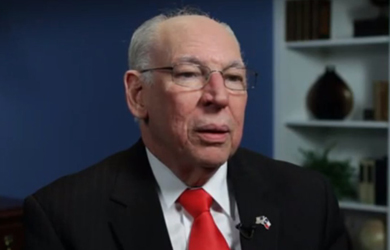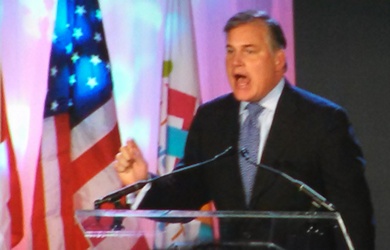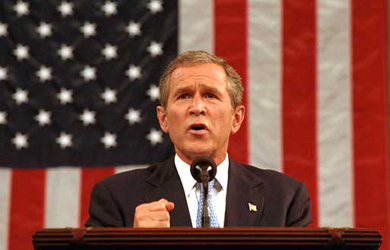The World Congress of Families 2017 global gathering will get underway in Budapest, Hungary, later this week. The event, titled the Budapest Family Summit, will bring American anti-LGBTQ and anti-abortion activists together with their allies from around the world. WCF leaders have been openly praising Hungary’s illiberal leader, Viktor Orbán, who is scheduled to speak at the Budapest Democratic Forum being held in conjunction with the summit.
A statement from the WCF and its parent group, the International Organization for the Family, gushed that thanks to Orbán’s leadership, “Hungary has a well-deserved reputation as one of the most family-friendly countries in Europe.” Well, unless you’re talking about refugee families, of course. Or LGBTQ families.
Here’s what WCF has to say about Hungary and Orbán :
Hungary’s leadership in defense of family, life, and Christianity is well known in Europe. The adoption of key provisions in the Hungarian Constitution in 2011 defining marriage between a man and a woman and protecting human life from conception to natural death have made the Orbán government the hero of pro-family and pro-life leaders from all over the world. Hungary’s leadership is fully committed to family friendly governance and has recently launched a new national motto, “Hungary, the Family Friendly Country.”
What is most well known in Europe is Orbán’s lack of concern for democratic values and basic freedoms. Orbán is considered an ideological ally of other European right-wing nationalists, like Marine Le Pen of France and Geert Wilders of the Netherlands. But, unlike those figures, and like Russia’s Vladimir Putin, Orbán is in power—and he’s using it. As we noted last year:
Orbán makes no effort to hide his “illiberal” authoritarian nationalist vision. A year ago, in a Politico article titled “Europe’s New Dictator,” Colin Woodard wrote that Orbán’s “dictatorial tendencies” were laying “the course of a deepening tragedy at the heart of Europe with lasting implications for the west.” Woodard notes that Orbán and his party have purged the civil service, packed the courts with political loyalists, restricted freedom of the press, and rewritten the Constitution to give a sheen of legitimacy to all of his efforts. He’s also gone after government watchdog groups and other nonprofits.
Last fall, Foreign Policy’s James Traub published a series of articles on Hungary’s rightward shift, in which he labeled Orbán a “right-wing demagogue” and quoted an analyst saying that while Orbán is not religious, he “constantly invoked Hungary’s ‘Christian’ culture.”
Orbán’s agenda has been clear for some time. Back in 2014, Bloomberg noted that he had “amassed more power than any of his predecessors since the fall of the Iron Curtain in 1989, replacing the heads of independent institutions including the courts with allies, tightening control over media and changing election rules to help him retain a constitutional majority in Parliament.”
Orbán has also cracked down on civil society organizations, much as Putin has. But his Religious Right allies, who are prone to share Orbán’s penchant for demonizing philanthropist George Soros, don’t seem at all upset about that.
Indeed, earlier this month, the right-wing LifeSiteNews reported positively on Orbán telling “Eurocrats” that he would retreat from his attacks on foreign NGOs and universities—but then telling a TV audience at home that he had no intention of backing down. Another Religious Right leader who has fallen for Orbán is globe-trotting anti-gay activist Scott lively, who wrote about his adoration last year.
Orbán is, of course, not the only illiberal politician embraced by the supposedly liberty-loving leaders of the Religious Right. As we have noted, Religious Right leaders’ embrace of the world’s most repressive regimes makes it clear that their hostility to LGBTQ equality and legal access to abortion trump their commitment to freedom of speech, freedom of religion, and other democratic values.
This will be the first WCF global gathering since it became of project of the International Organization for the Family, launched late last year by National Organization for Marriage President Brian Brown.
“Hungary has demonstrated its strategic leadership as an advocate for the natural family in Europe,” says WCF’s Larry Jacobs. “We believe that this Congress will strengthen our existing international network and help launch a new global pro-family alliance of countries dedicated to defending marriage, the family and the sanctity of life.”
The local organizing committee is headed by Katalin Novak, Hungary’s Secretary of State for Youth, Family and International Affairs. Novak was present at IOF’s launch event in Capetown, South Africa. Novak and her boss Zoltan Balog, who heads the Ministry of Human Capacities, are among many Hungarian officials who will be taking part in the WCF summit. Balog was part of Hungary’s delegation to the National Prayer Breakfast in Washington, D.C. in February.
Writing in The American Prospect in December, John Shattuck drew parallels between Orbán’s rise and Donald Trump’s election. He is not the only one to make the comparison: the organizers of the WCF summit tipped their hats to Trump with the theme they chose: “Building Family-Friendly Nations: Making Families Great Again.”









